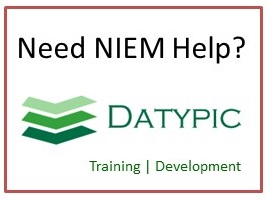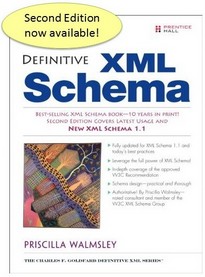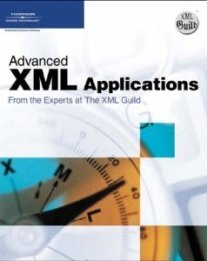gml:directedNode
A gml:directedNode property element describes the boundary of topology edges and is used in the support of topological point features via the gml:TopoPoint expression, see below. The orientation attribute of type gml:SignType expresses the sense in which the included node is used: start ("-") or end ("+") node.Element information
Namespace: http://www.opengis.net/gml/3.2
Schema document: external/ogc/gml/3.2.1/topology.xsd
Type: gml:DirectedNodePropertyType
Properties: Global, Qualified
Content
- gml:Node [0..1]gml:Node represents the 0-dimensional primitive. The optional coboundary of a node (gml:directedEdge) is a sequence of directed edges which are incident on this node. Edges emanating from this node appear in the node coboundary with a negative orientation. If provided, the aggregationType attribute shall have the value "sequence". A node may optionally be realised by a 0-dimensional geometric primitive (gml:pointProperty).
Attributes
| Name | Occ | Type | Description | Notes |
|---|---|---|---|---|
| orientation | [0..1] | gml:SignType | Default value is "+". | |
| xlink:type | [0..1] | xsd:string | Fixed value is "simple". from group xlink:simpleLink | |
| xlink:href | [0..1] | xsd:anyURI | from group xlink:simpleLink | |
| xlink:role | [0..1] | xsd:anyURI | from group xlink:simpleLink | |
| xlink:arcrole | [0..1] | xsd:anyURI | from group xlink:simpleLink | |
| xlink:title | [0..1] | xsd:string | from group xlink:simpleLink | |
| xlink:show | [0..1] | Anonymous | The 'show' attribute is used to communicate the desired presentation of the ending resource on traversal from the starting resource; it's value should be treated as follows: new - load ending resource in a new window, frame, pane, or other presentation context replace - load the resource in the same window, frame, pane, or other presentation context embed - load ending resource in place of the presentation of the starting resource other - behavior is unconstrained; examine other markup in the link for hints none - behavior is unconstrained | from group xlink:simpleLink |
| xlink:actuate | [0..1] | Anonymous | The 'actuate' attribute is used to communicate the desired timing of traversal from the starting resource to the ending resource; it's value should be treated as follows: onLoad - traverse to the ending resource immediately on loading the starting resource onRequest - traverse from the starting resource to the ending resource only on a post-loading event triggered for this purpose other - behavior is unconstrained; examine other markup in link for hints none - behavior is unconstrained | from group xlink:simpleLink |
| nilReason | [0..1] | gml:NilReasonType | from group gml:AssociationAttributeGroup | |
| gml:remoteSchema | [0..1] | xsd:anyURI | from group gml:AssociationAttributeGroup | |
| owns | [0..1] | xsd:boolean | Default value is "false". from group gml:OwnershipAttributeGroup |
Used in
- Type gml:EdgeType (Element gml:Edge)
- Type gml:TopoPointType (Element gml:TopoPoint)
Sample instance
<gml:directedNode> <gml:Node gml:id="ID"> <gml:metaDataProperty> <gml:GenericMetaData>Any text, intermingled with: <!--any element--> </gml:GenericMetaData> </gml:metaDataProperty> <gml:description>string</gml:description> <gml:descriptionReference/> <gml:identifier codeSpace="http://www.example.com/">string</gml:identifier> <gml:name>string</gml:name> <gml:container> <gml:Face gml:id="ID">... </gml:Face> </gml:container> <gml:directedEdge> <gml:Edge gml:id="ID">... </gml:Edge> </gml:directedEdge> <gml:pointProperty> <gml:Point gml:id="ID">... </gml:Point> </gml:pointProperty> </gml:Node> </gml:directedNode>



